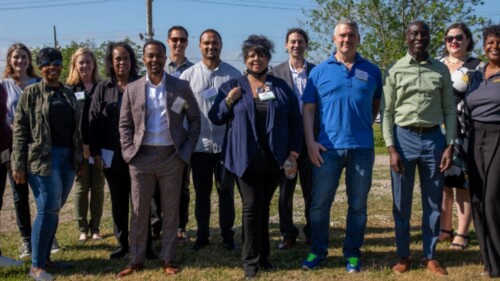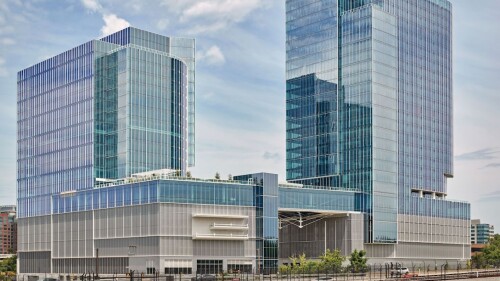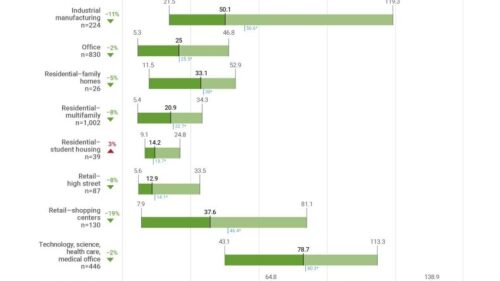Resilience and Sustainability
Since 2022, five ULI district councils—ULI Colorado, ULI Los Angeles, ULI New York, ULI Louisiana, and ULI Philadelphia—have participated in a long-term effort to tackle climate resilience, equity, and land use issues through the second Resilient Land Use Cohort (RLUC2), hosted by ULI’s Urban Resilience program.
California’s recent landmark legislation on climate disclosure, passed in fall 2023, will drive new evolution in real estate reporting on climate risk and provide more public insight than ever into the industry’s impact on climate change.
Ten projects take advantage of financial tools that promote environmentally positive development
Progress on the decarbonization of real estate portfolios is being held back by a lack of understanding and collaboration between property owners and occupiers, according to a new report from the Urban Land Institute C Change program. If better alignment between the two parties is not prioritized, it has the potential to increase total emissions from the built environment over the medium to long term as real estate decisions are often medium to long-term commitments.
2023 was the hottest year on record, according to climate change service Copernicus. Extreme heat and climate change usher in a whole host of obstacles for the commercial real estate industry to hurdle. Finding the best information on how to approach these hurdles can prove difficult. ULI has compiled our best reports, webinars, articles, and case studies covering what you need to know about how the hottest year on record is going to the industry.
On January 10, ULI Washington convened its second annual “Future Forum: Preparing for the Big Pivot—Building Our Future Around the Innovation Economy” event at the Johns Hopkins University Bloomberg Center. The all-day gathering, attended by more than 200 ULI members, featured insights from industry leaders and participants to address the future of the Metropolitan Washington Region.
Despite economic and political uncertainties, a host of market pressures—such as growing connections between sustainability and financial performance, increasing regulations, extreme weather events, and the importance of health and social equity—are driving real estate companies to prioritize sustainability like never before.
Experts speaking in December at a panel discussion at the COP28 climate summit in Dubai pointed to two ways in which the industry is already improving its environmental performance: first, by renovating more, and second, by using building materials with more recycled content.
Each year since 2009, ULI Greenprint members have reported their asset-level operational energy, water, waste, and carbon performance data to be included in the State of Greenreport. For the first time this year, ULI Greenprint piloted the voluntary submission of embodied carbon data from recent development projects to State of Green, Volume 14. This data is an important step in encouraging real estate to measure and reduce its embodied carbon emissions as the industry progresses toward net zero.
ULI’s new report shares promising examples of efforts to reconnect communities divided by highway infrastructure.








